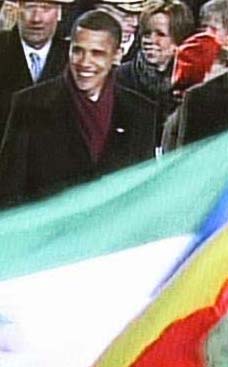
The culture of smoking is different here - I have never seen someone 'bum' a cigarette. Instead, people offer cigarettes whenever they smoke one. The offers are reserved for males and they are almost always accepted. Beyond, "Smoking is bad for your health," I have heard no specifics regarding the ills of smoking and, indeed, there is not the same negative health connotation associated with smoking as in America. There is another connotation, however, related to women smokers. The reasons associated with the avoidance of smoking on the part of women is related to the strongly negative moral connotation therein. I have never seen one of my female students smoke a cigarette and it's rare that I ever see women smoke here. Women who do smoke are more likely to do so within the privacy of their own home, where people won't judge them.
China Peace Corps Volunteer Dustin Ooley writes: In China, smoking is ubiquitous
Do you smoke?
Countless bus rides have led me to believe that "No Smoking" signs are little more than a formality required by some government agency. It takes one person to light up before others follow, creating a smoke filled atmosphere that leaves clothes reeking and me frustrated once again. Sometimes I open a window to let the winter air in, but it's not a clear enough sign to convey my feelings and there's probably more pollution filling the outside air anyway. I usually just try to forget about it, thinking on the cleaner air of Seattle's smoke free restaurants.
According to a 2005 World Health Organization study, the prevalence of smokers in America hovers around the low twenties, the percentage for men being only slightly higher than that for women. In China the percentage is in the thirties with an important difference: 4 percent of women smoke, whereas nearly 60 percent of men do.
In China, smoking is ubiquitous. The culture of smoking is different here - I have never seen someone 'bum' a cigarette. Instead, people offer cigarettes whenever they smoke one. The offers are reserved for males and they are almost always accepted. Beyond, "Smoking is bad for your health," I have heard no specifics regarding the ills of smoking and, indeed, there is not the same negative health connotation associated with smoking as in America.
There is another connotation, however, related to women smokers. The reasons associated with the avoidance of smoking on the part of women is related to the strongly negative moral connotation therein. I have never seen one of my female students smoke a cigarette and it's rare that I ever see women smoke here. Women who do smoke are more likely to do so within the privacy of their own home, where people won't judge them.
Cigarettes are cheap here, prompting one volunteer to jokingly comment that it would be crazy not to start smoking in China. A cheap pack is around 4 yuan, or about 60 cents, though most people smoke 5-10 yuan cigarettes. The price is low because China has not placed the same heavy "sin taxes" on cigarettes like industrialized western countries.
As China continues to develop and modernize, the question of whether or not the government will begin a significant anti-smoking campaign is an important one. With one of every four Chinese dying of lung related illness, the contribution of smoking to a significant amount of deaths each year cannot be ignored. Perhaps the men should take a lesson from the women.
Posted by at January 30, 2009 11:30 p.m.













